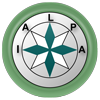IALPA Statement on the report into crash of R116.
5th November 2021
Rescue 116 Crew Tragically Failed by Irish Regulation
On 14th March 2017 the crew of Rescue 116 – Captain Dara Fitzpatrick, Captain Mark Duffy, Winch Operator Paul Ormsby, and Winchman Ciarán Smith lost their lives while participating in a rescue off the Mayo coast. This report shows that the loss of their lives was as needless as it was preventable.
It is evident from media reporting that the final publication of the Report corresponds with the AAIU Interim and Preliminary reports and makes it clear that the crew of R116 were exemplary in the performance of their assigned task. Their planning, response, teamwork, and communication was exactly what would be expected from such a competent and seasoned crew, on a flight led by such professional pilots. They were let down by a regulatory system which left them ill-equipped to do the vital work that same system tasked them with.
The report outlines a number of regulatory and systemic issues which conspired to put the crew in lethal danger. Prime amongst them was the provision of inaccurate and misleading chart and map data.
All flight crew rely on the basic assumption that their maps and charts provide accurate data. Few flight crews could be more reliant on that assumption of accurate data than the crew of a rescue helicopter, operating offshore in challenging conditions outside their normal home base, scrambled at short notice to launch a rescue in the middle of the night (00:45 am). They relied on the data production standards of Irish regulation to guarantee them correct information. They were let down.
IALPA President Evan Cullen described it as a fundamental betrayal; “As an airline pilot, if I take a flight from Dublin to Rome, I must navigate the Alps, and I expect one of two things from the Swiss authorities; tell me the height of the alps, or tell me they don’t know the heights, so I’d better avoid them. The one thing they can’t do, under any circumstances, ever, is tell me the wrong height, or tell me the Alps are not there. In essence that is what the Irish state did to Dara, Mark, Paul and Ciarán. They approved information which said, ‘you are safe’, when the absolute opposite was the truth.”
The report details failures in oversight, equipment requirements & maintenance, and in resourcing for Search and Rescue. But it is the Regulatory failure by the now-defunct Irish Aviation Authority which is central to this accident. They set the standards for equipment, for mapping, and for oversight. They accepted standards which most, if not all, of their European peer Authorities would not.
This tragic and unnecessary loss of life must not be allowed to happen again. IALPA is calling on the Government and Minister for Transport to institute an immediate review of the failures identified in this report, and to bring forward concrete proposals to address each and every identified failure immediately.
Contact numbers:
Captain Evan Cullen 0877102480 president@ialpa.net
Captain Simon Croghan 0877512147 vpadmin@ialpa.net
Captain Simon Moody 0872378533 simonmoody@icloud.com
Captain Simon Carruthers 0857271450 corkrep@ialpa.net
Notes to Editors
The United Nations body established to oversee and govern aviation is the International Civil Aviation Organisation. ICAO publishes Annexes which contracting states implement. 99% of jurisdictions/ countries including Ireland are contracting states to ICAO.
ICAO Annex 4 Chapter 1 states:
“1.3.2.1 For any chart or single sheet of a chart series entirely contained within the territory of a Contracting State, the State having jurisdiction over the territory shall either:
a) produce the chart or sheet itself; or
b) arrange for its production by another Contracting State or by an agency; or
c) provide another contracting State prepared to accept an obligation to produce the chart or sheet with the data necessary for its production.”
“1.3.3 A Contracting State shall take all reasonable measures to ensure that the information it provides and the aeronautical charts made available are adequate and accurate and that they are maintained up to date by an adequate revision service.”
State Safety Plan [for Ireland] published in 2016 and 2017 state:
“In Ireland, the IAA [Irish Aviation Authority] provides Electronic Terrain And Obstacle Data (ETOD), for use by industry stakeholders, such as GPS and FMS database suppliers. The ETOD helps to eliminate database transfer errors in on board TAWS [Terrain Awareness Warning Systems] equipment and thereby helps minimise CFIT [Controlled Flight into Terrain] occurrences.”
[Irish Aviation Authority] IAA Aeronautical Services Advisory Memorandum (ASAM) No:22, Issue 2 Date: 18 August 2018 states:
“3 General
3.1 Introduction
It is the responsibility of the IAA to ensure that integrity of aeronautical data is maintained throughout the data process from survey/origin to the next intended user. That aeronautical data quality requirements related to the accuracy, integrity, resolution and data classification shall be as provided [ICAO] Annexes 4, 11 14, and 15.”
“Note: The distribution of aeronautical data is the responsibility of the AIS unit.”
The AIS unit is the Aeronautical Information Service Unit in the IAA.
“6 Responsibilities for Aeronautical Data AIS Responsibilities
- Deal with queries relating to aeronautical data;
- Publish aeronautical data;
- Supply aeronautical data to end users in a secure manner; and
- To log instances of non-complianceASD Responsibilities
• Ensure the aeronautical data quality requirements contained within appendices to Annex 4, Annex 11, Annex 14 and Annex 15 are met;
Note on IALPA
IALPA (the Irish Air Line Pilots’ Association) is the representative body for professional pilots in Ireland. (www.ialpa.net) IALPA was established in 1946 and currently has circa 1,200 pilot members. IALPA is affiliated to the European Cockpit Association (ECA) and the International Federation of Airline Pilot Associations (IFALPA). The majority of IALPA pilot members operate in Aer Lingus, CityJet, Emerald Airlines, Ryanair and CHC. CHC is the company providing helicopter Search & Rescue (SAR) to the Irish Coast Guard.
ENDS

